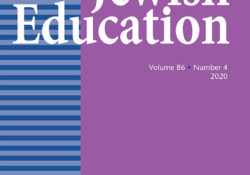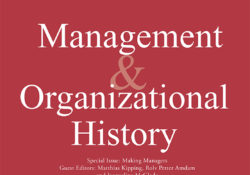tandfonline.com har udgivet en rapport under søgningen “Teacher Education Mathematics”: ABSTRACT ABSTRACT Background: There is a growing view that ‘Big Ideas of science education’ are useful for teaching science but there is not much knowledge of how teachers work with them. Purpose: This study explores the conceptualisation and practice of the use of Big Ideas of science education by primary and secondary teachers in Chile. Sample: A total of 63 science teachers (a purposive sample) from pre-school, primary and secondary education in Valparaíso Region in Chile participated in the study, with 38 of them answering all the questions in the research instrument and 25 answering some of them. Design and methods: The research instrument was a questionnaire with open-ended questions. Results: The use of Big Ideas was seen as the… Continue Reading →
Like this:
Like Loading...
tandfonline.com har udgivet en rapport under søgningen “Teacher Education Mathematics”: ABSTRACT ABSTRACT A conceptual framework is presented to understand and study the role of students’ agency in their school (dis-)engagement from a Funds of Identity (FoI) perspective. The framework includes the notion of agency combined with Funds of Learner Identity (FoLI): learning preferences that can be considered part of people’s Funds of Identity. The framework holds that students manifest agency to negotiate engaging learning experiences when the school’s affordances and constraints are considerably relatable to their FoLI and allow them to define themselves in desired ways. However, adolescents who feel that possibilities to engage their FoLI are rather limited in school are expected to turn to other contexts to learn, such as home, peer groups and workplaces. An exemplary case… Continue Reading →
Like this:
Like Loading...
eric.ed.gov har udgivet: Scaling Effective Programs is a category of giving that is quite unique. Philanthropists have many different interests that guide their giving, but Scaling Effective Programs offers an approach that can produce lasting transformation. This guide speaks to funders who: (1) view their giving as venture capital that stimulates other giving; (2) want to support a program for a limited time, rather than an open-ended commitment; and (3) want their giving to have significant and lasting effects that can be measured. Scaling Effective Programs is based on the principle that a limited period of investment giving can be structured successfully to create the greatest chance of having programs spread to more locations and be sustained long after the initial investment. This approach allows funders to move on to… Continue Reading →
Like this:
Like Loading...
tandfonline.com har udgivet en rapport under søgningen “Teacher Education Mathematics”: ABSTRACT ABSTRACT Jewish education in Israel’s non-religious state (Mamlakhti) schools is intended to support an open-ended, pluralistic dialogue surrounding the question of Jewish identity. The distinct features of Knowledge Building Communities (KBCs) set them apart as a pedagogical approach that is particularly suitable for achieving this educational goal. In this article, we report on a year-long study that redesigned a tenth-grade Jewish philosophy class in Israel as a KBC. Our findings indicate that students co-created a Jewish-identity idea landscape, which they crisscrossed and rose above, to develop a deeply nuanced understanding of contemporary Jewish identity in Israel. Link til kilde
Like this:
Like Loading...

tandfonline.com har udgivet en rapport under søgningen “Teacher Education Mathematics”: Abstract Abstract Conversation Analysis was used to explore how teachers, personal care assistants, and students organized inclusive multiparty classroom interaction when one of the students in the classroom used an eye-gaze accessed speech-generating device (SGD). Scaffolding and collaborative practices that created a response space for the construction of the eye-gaze accessed SGD-mediated turn were identified and analyzed. The participants were two adolescent students with severe cerebral palsy and intellectual disability who relied on eye-gaze accessed SGDs, and their teachers, personal care assistants, and classmates with intellectual disabilities. The data consisted of 2 hr and 40 min of video recordings collected in the participants’ classrooms. Three practices were identified (a) the practice of explicit turn allocation organization and the use of display questions,… Continue Reading →
Like this:
Like Loading...
tandfonline.com har udgivet en rapport under søgningen “Teacher Education Mathematics”: ABSTRACT ABSTRACT This paper explores the development of executive education in the US from 1945 to around 1970, and its function in developing potential top executives’ cultural, symbolic, and social capital. The paper shows that postwar executive education was an expression of how the academic community acted according to its societal obligations by offering the new leaders norms and values that could replace what was lost during the transformation to managerial capitalism. This function legitimized executive education within the business schools, which was at the time primarily characterized by a very different logic of scientization. Link til kilde
Like this:
Like Loading...
eric.ed.gov har udgivet: After having secondary math education majors write an essay entitled, “What is Mathematics?” for the past 4 years, the first attempt was made to create an instrument based on the results of these essays that would measure math beliefs. Based on previous research which suggests that a math teacher’s beliefs influence the teacher’s methodology, the instrument was administered to elementary education majors to determine their methodological tendencies. The results are compared to similar data obtained from secondary math education majors (n=11) and urban, college-bound high school juniors (n=13). The results suggest that elementary education majors who expect to teach mathematics need a broader vision of what mathematics is. Appendixes contain the survey instrument and results. (Author/NB) Link til kilde
Like this:
Like Loading...
tandfonline.com har udgivet en rapport under søgningen “Teacher Education Mathematics”: Abstract Abstract Writing, a critical pedagogical tool, cultivates student learning and fosters deeper understanding of the material. When frequent, low -stakes (informal) writing activities help students write more freely, engage with the material and thus become active learners. Looking at students who are at opposite ends of a community college spectrum, this article compares and contrasts students’ writing skills using low-stakes assignments, including peer-reviewing of each other’s work, in a capstone course and in a First-Year Seminar in terms of organization, clarity in communication and content analysis. The data generated from this study stem from an interdisciplinary collaboration among three instructors from Humanities, Mathematics and Natural Sciences, with the goal of creating a network between students in First-Year Seminars and… Continue Reading →
Like this:
Like Loading...
eric.ed.gov har udgivet: Four 3-year projects within the Rural Telecomputing Initiative enabled rural teachers in Montana, Colorado, Minnesota, and Tennessee to connect with math and science reform communities and use resources available through the Internet. This study of the projects’ first 2 years examined: (1) whether the projects made a difference in teachers’ isolation and attempts to improve math and science education; and (2) whether resources the projects developed were valuable to rural teachers in reforming math and science education. The study included two written surveys, 9 months apart, of teachers and principals. Evaluation teams visited two participating schools within each local project annually, observing science and mathematics classes; interviewing principals, teachers, and students; and moderating focus groups. Results found that teachers became substantially more comfortable with the Internet. Telecomputing… Continue Reading →
Like this:
Like Loading...
tandfonline.com har udgivet en rapport under søgningen “Teacher Education Mathematics”: Link til kilde
Like this:
Like Loading...






